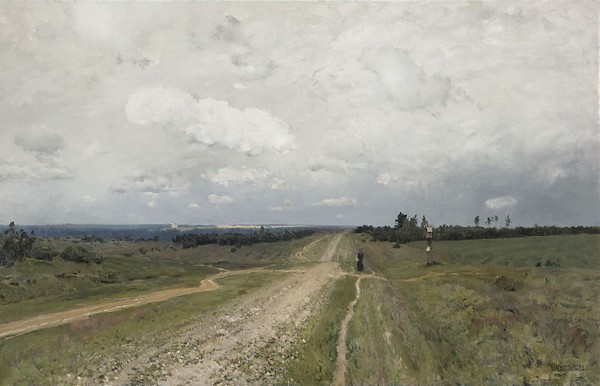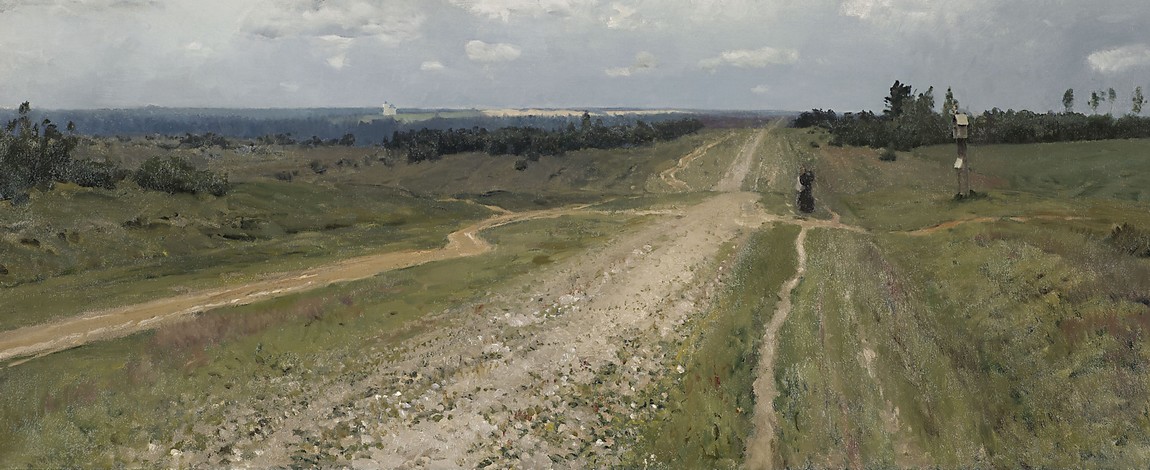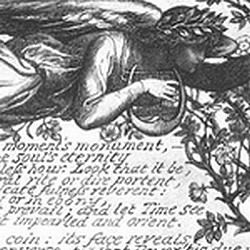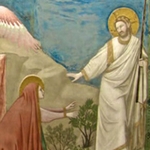
Songs of Travel by Ralph Vaughan Williams was premiered (along with another song cycle, The House of Life) in 1904, when he was thirty-two and the end of his first stage as a composer was approaching; he would soon show interest in his country's folklore and reflect it in his music, beginning the second compositional period. But the music of the early years showed post-romantic traits and the influence of his time in Germany (think, for instance, of the music of Richard Strauss and so many composers). The poems of Robert Louis Stevenson are also clearly linked to Romanticism; Vaughan Williams selected nine of them from the collection Songs of Travel and Other verses (posthumously published in 1896) which tells us about a wayfarer, a character who cannot be dissociated from the romantic wanderer.
We have so far listened to two songs from this cycle: no. 2 Let Beauty Awake, and no. 6 The Infinite Shining Heavens. Our song for this week is the no. 4 Youth and Love, which solves a conflict anticipated in the previous one, The Roadside Fire. In this love song, the wayfarer tells his beloved what his idyllic life would be together. Whatever they needed, they would get it from nature.
The beloved does not seem to agree with this lifestyle because in Youth and Love, the young man has to choose between love and an errant life. The poem has two five-verse stanzas, which Vaughan Williams musically handles in a very different way. The long first sentences of the vocal line tell us about the world of poetic voice, a path that must always be followed. On the roadside, however, temptations await him, hidden in golden pavilions in flowery gardens. However, to him, the mystery is not in these inviting houses; to him, and so the composer says in the score with the indication misterioso, the mystery is in the setting sun on the horizon.
The second stanza begins with sparkling stars, as abundant as the pleasures that assault the wanderer. According to the sensual music we hear, it appears that the wanderer doubts: will he stay with his beloved? However, we begin to hear his resolution in the accompaniment before the words say it: "He to his nobler fate fares." As stated in the previous poem in Stevenson's collection (not set to music by Vaughan Williams), “My mistress still the open road / And the bright eyes of danger”.
The man leaves without even stopping to say goodbye to the woman. He only speaks a few words from a distance and greets her with his hand. It's not a noble gesture, but Vaughan Williams enhances these verses musically, which become the climax of the song, perhaps to emphasize the difficulty of the decision (could he go away, if he would stop to say goodbye?) The moment of agitation passes, and the young man disappears, singing softly a song. However, the composer closes the song with what appears to be a question: he repeats the last words of the poem, "is gone," an octave lower, while the piano fades. What is music telling us?
Youth and Love is a beautiful song, as is the whole cycle. We are listening to it performed by Simon Keenlyside and Malcolm Martineau. I hope you enjoy it, and it invites you to listen to the whole cycle. I've had Songs of Travel going around in my head for days, and you know that when this happens, I share the music with you.
To the heart of youth the world is a highwayside.
Passing for ever, he fares; and on either hand,
Deep in the gardens golden pavilions hide,
Nestle in orchard bloom, and far on the level land
Call him with lighted lamp in the eventide.
Thick as the stars at night when the moon is down,
Pleasures assail him. He to his nobler fate
Fares; and but waves a hand as he passes on,
Cries but a wayside word to her at the garden gate,
Sings but a boyish stave and his face is gone.

















Comments powered by CComment